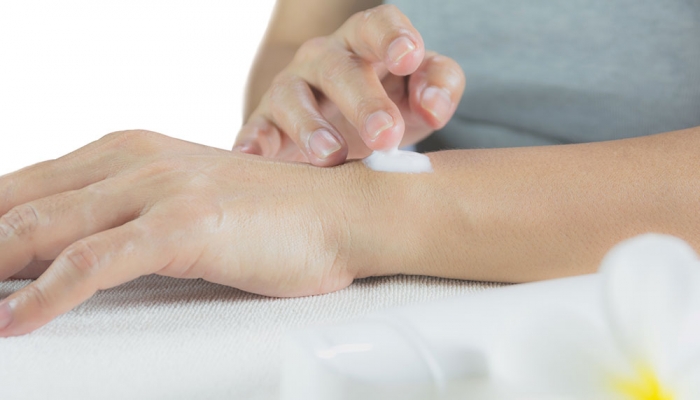Do Over-the-Counter or Home Remedies for Surgical Scars Work?

Surgery can correct health problems and sometimes even save your life. Unfortunately, it also sometimes leaves you with a scar or two.
Surgical techniques have improved tremendously in the last few decades so that more and more procedures can be done with small incisions that don’t leave big scars. Whenever possible, surgeons try to make those incisions in the least noticeable places.
Still, any injury to the skin, whether it’s accidental or carefully done with a scalpel, can leave a scar. If the scar is visible, you may be wondering if there’s an easy way to make it go away. Do over-the-counter (OTC) or home remedies work?
The short answer is some of them may help, although nothing can make the scar invisible. Here’s a look at what’s out there:
Common OTC and home remedies
- Silicone scar sheets or gels. These products have the most evidence to back them up. Studies have shown they can improve the appearance of some scars, although it may take a few months of regular use to see a difference. Silicone treatment seems to be especially good at improving the appearance of thick scars.
- Onion extract. Some studies have shown products containing onion extract helped improve the appearance of scars, although another study failed to find evidence that they helped. If you want to do a study on yourself, you can try a product called Mederma, which contains onion extract and allantoin. It may take several weeks to see a difference.
- Vitamin E, cocoa butter, aloe vera, or similar lotions: If you use products containing these substances right after your surgery, they may help keep your skin in good shape so you have less of a scar. But there’s no evidence that they make an existing scar less visible.
- Chemical exfoliants. These are often found in anti-aging creams and serums intended to remove outer layers of skin to smooth fine lines. They can help diminish dark marks and acne scarring, although it’s not clear whether they would make a difference with surgical scars.
- Sunscreen. While sunscreen won’t remove scars, it can help keep them from getting darker, so it’s a good idea to always apply it to any exposed scars before going outside.
Prescriptions and surgical treatment
If you’re not satisfied with OTC treatments and home remedies, talk to your medical team. They may prescribe tretinoin or steroids or recommend collagen injections.
Cosmetic surgery is also an option for some scars, although your insurance probably won’t cover it unless your scar is causing a non-cosmetic problem, such as interfering with movement.
Preventing scars
Your best bet is to minimize scarring to begin with by doing what you can to help your incision heal well. Your doctor will give you specific wound care instructions when you leave surgery, but in general, here are some recommendations for reducing scar formation:
- Keep the wound and bandages clean to help promote fast healing.
- Use petroleum jelly or a similar ointment on the wound to keep the skin from drying out.
- Remove stitches at the right time. Taking them out too early or leaving them in too long can increase the chances of scarring.
- After the wound has healed, use sun protection. Covering up or using sunscreen can prevent a scar from darkening and becoming more obvious.
At Specialty Surgical Center, we are sensitive to your desire to avoid scarring and use techniques designed to minimize the problem. Please don’t hesitate to talk to your surgeon about any concerns you have.
Specialty Surgical Center is located in Sparta, New Jersey, and our staff consists of board certified surgeons and anesthesiologists performing procedures in orthopedics, sports medicine, spinal care, podiatry, urology, pain management, ENT, hand surgery, lithotripsy, brachytherapy, GYN, and laser surgery.
For more information about Specialty Surgical Center, call 973-940-3166 or visit our Contact Page.
The information contained in this article is for educational purposes only and is not intended to replace or counter a physician’s advice or judgment. Please always consult your physician before taking any advice learned here or in any other educational medical material.